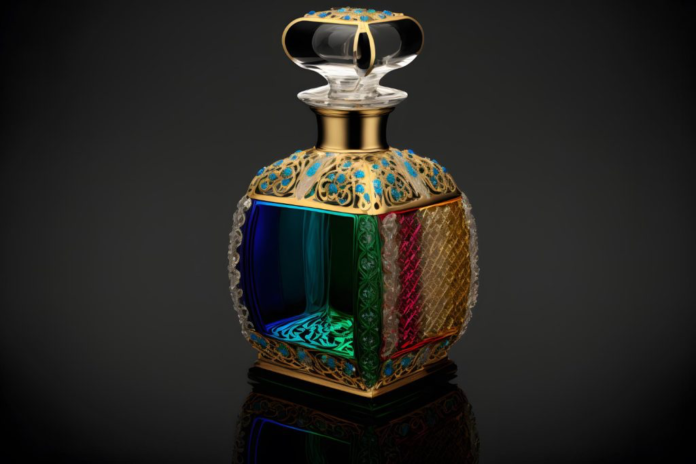In the heart of the Middle East, where history and tradition are deeply interwoven with daily life, the art of perfumery holds a special place. Arabic fragrances are not merely scents that please the senses; they are vessels of memory, carriers of cultural heritage that span generations. Each whiff of oud, rose, or ambergris is a connection to the past, a reminder of stories told, rituals performed, and values upheld. This blog explores how Arabic fragrances serve as powerful tools in preserving cultural heritage, turning every bottle into a time capsule that encapsulates the essence of a people and their traditions.
Table of Contents
The Historical Significance of Arabic Fragrances
Arabic fragrances have been an integral part of Middle Eastern culture for thousands of years. Long before the advent of modern perfumery, ancient civilizations in the Arabian Peninsula and surrounding regions were mastering the art of distillation and blending aromatic oils. These early perfumes were not just luxury items but played crucial roles in religious ceremonies, medical practices, and daily life.
The significance of these scents in cultural practices cannot be overstated. For example, the use of oud, derived from the resinous wood of the Aquilaria tree, has been documented as far back as ancient Mesopotamia. Oud’s rich, woody aroma was believed to have spiritual properties, purifying the air and creating an atmosphere conducive to meditation and worship. Similarly, the scent of rose was often associated with love and beauty, frequently appearing in poetry and romantic traditions.
As these fragrances became embedded in the cultural fabric of the region, they began to serve as markers of identity and heritage. The scents were not just olfactory experiences but carriers of memory, linking individuals to their ancestors and to the collective history of their people.
Scent and Memory: A Deep Connection
The connection between scent and memory is a phenomenon well-documented by science. The olfactory bulb, which processes smells, is directly linked to the limbic system, the part of the brain involved in emotion and memory. This close relationship means that scents can trigger vivid memories and emotions more effectively than any other sense.
In the context of Arabic fragrances, this connection takes on a cultural dimension. The scents that have been part of Middle Eastern life for centuries—oud, frankincense, myrrh, and rose—are imbued with layers of meaning and memory. For many, the smell of oud might evoke memories of family gatherings, religious celebrations, or the quiet moments of reflection during prayer. Similarly, the aroma of rose might bring to mind the gardens of Damascus, the “city of jasmine,” or the love stories passed down through generations.
In this way, Arabic fragrances act as custodians of cultural memory. They preserve the intangible aspects of heritage, such as emotions, values, and traditions, allowing them to be experienced anew with each encounter. This is particularly important in a rapidly changing world, where globalization and modernization can sometimes threaten to erode cultural practices.
The Role of Fragrance in Modern Arabic Culture
In today’s Middle East, the role of fragrance continues to be deeply significant. While the methods of production may have evolved, the cultural importance of these scents remains undiminished. Arabic fragrances have even expanded beyond traditional uses, finding new expression in contemporary forms that appeal to a global audience.
One of the notable trends in modern perfumery is the rise of unisex perfume, which breaks away from the gendered norms of fragrance marketing. In Arabic culture, this concept is not entirely new. Traditionally, many Arabic scents, such as oud and amber, have been considered suitable for both men and women, reflecting a more holistic approach to fragrance that is rooted in the cultural understanding of scent as a universal experience.
This shift towards unisex perfumes has also been embraced by Western markets, where the allure of Arabic scents has found a receptive audience. Perfume houses around the world are increasingly incorporating traditional Middle Eastern ingredients into their lines, recognizing the rich cultural heritage these scents carry. The result is a fusion of East and West, where the preservation of Arabic traditions is celebrated on a global stage.
In many ways, the modern perfume shop is a place where these cultural exchanges occur. Whether in the souks of Dubai or the boutiques of Paris, these shops offer a sensory journey through time and culture, allowing customers to connect with the heritage of Arabic perfumery while also experiencing new interpretations of these ancient scents.
The Preservation of Cultural Heritage Through Fragrance
The role of Arabic fragrances in preserving cultural heritage is multifaceted. On one level, these scents act as tangible links to the past, preserving the olfactory traditions that have been passed down through generations. On another level, they serve as symbols of cultural identity, representing the values, beliefs, and practices of the people who create and use them.
In recent years, there has been a growing recognition of the importance of preserving these olfactory traditions. Initiatives aimed at protecting traditional methods of perfume-making and ensuring the sustainable sourcing of ingredients are gaining momentum. For example, the cultivation of roses in the Middle East, particularly in regions like Taif in Saudi Arabia, has been supported by efforts to maintain traditional farming practices while also meeting the demands of modern perfumery.
These initiatives are not just about preserving a product but about safeguarding a cultural heritage that is intrinsically linked to the identity of the region. By supporting the continued production of traditional Arabic fragrances, these efforts help to ensure that the memories and values embedded in these scents are not lost to time.
Moreover, the global interest in Arabic fragrances has opened up new opportunities for cultural preservation. As more people around the world become acquainted with these scents, there is a growing appreciation for the cultural stories they carry. This, in turn, supports the continuation of these traditions, as demand for authentic Arabic fragrances encourages the production and preservation of these time-honored practices.
The Timeless Power of Arabic Fragrances
Arabic fragrances are much more than mere perfumes; they are the essence of a culture, preserved in a bottle. Each scent carries with it the memories, stories, and values of the people who have created and cherished it over the centuries. Whether through the rich aroma of oud, the delicate scent of rose, or the universal appeal of unisex perfumes, these fragrances continue to play a vital role in preserving the cultural heritage of the Middle East.
As we move forward in an increasingly globalized world, the preservation of these olfactory traditions becomes ever more important. Arabic fragrances offer a unique way to experience and connect with a culture that is both ancient and ever-evolving. By supporting the continued production and appreciation of these scents, we ensure that the memories and heritage they carry remain alive for generations to come.
Apart from that if you want to know about Why Perfume doesn’t last and what to do about it then please visit our Lifestyle Category.



























